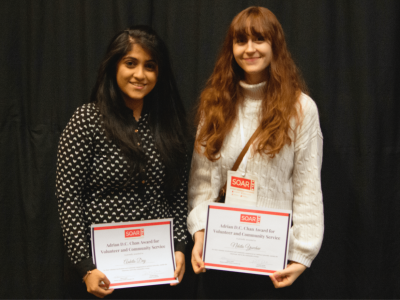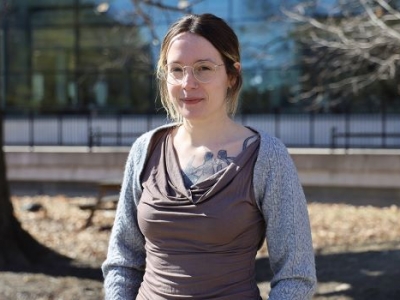A year ago, when FGPA conducted four focus groups with grad students, one of the overwhelming themes that arose was the isolation that many grad students feel, especially if they have completed their classes or are only on campus part-time.
So this time on GRAD TALK, we are asking you for your tips on how you deal with isolation.
You can comment in the box below on this website or email us at fgpa_newsletter@carleton.ca and we will share your comments in the next issue of TheGraduate@Carleton. All comments are considered to be confidential; names will not be divulged. We look forward to hearing from you.
 Last time on GRAD TALK, we asked how you deal with procrastination and any suggestions that you might have to help other grad students overcome this obstacle.
Last time on GRAD TALK, we asked how you deal with procrastination and any suggestions that you might have to help other grad students overcome this obstacle.
 PhD Candidate Mohsen Haghbin is researching how to measure procrastination and other forms of delay for his psychology dissertation.
PhD Candidate Mohsen Haghbin is researching how to measure procrastination and other forms of delay for his psychology dissertation.
He has the following tips for grad students dealing with procrastination.
- As renowned procrastination expert, Carleton Professor Tim Pychyl says, form a concrete intention/plan for starting your task (when, where, and how you start the task) as opposed to a vague plan. You can find out more in his self-help book: The Procrastinator’s Digest: A Concise Guide to Solving the Procrastination Puzzle or website: http://http-server.carleton.ca/~tpychyl/.
- When you intend to start reading your textbook or writing your essay but instead go to check Facebook, surf the Internet etc., it is more likely that you are using your automatic pilot to escape from some negative emotions related to the task. If you are aware of this, it can be stopped. You need to give a thought to what makes the task unpleasant. The important thing is that you found it difficult, vague, boring or unpleasant and therefore you need to find a better way to deal with it other than postponing it and then feeling more anxiety and blaming yourself for not starting the task.Thinking about the whole project is paralyzing sometimes. Break the task into smaller parts. When you cannot start writing the introduction, start with a title page, make a tentative table of content. If it is a project and you have collected and analysed data, create tables choose a title and then write a description for the table. In other words, find something that you can do in relation to your project that is less anxiety-provoking or unpleasant.
- You may need to embrace some level of anxiety or frustration anyway. But you should know that there is no limitation for the ways that one can reduce the level of anxiety related to a task. Some things that helped others are: listening to music and starting the task; close your eyes, take a deep breath and let what makes you anxious come through your mind and go (embrace the negative emotion for a short period of time as opposed to escape from it); ask a close person to sit beside you until you start and continue the task for one hour (use external regulation to overcome your internal inhibition to start the task); write your automatic thoughts nonstop for a couple of minutes and then read them (you will be surprised that many of these thoughts are negative, irrational, exaggerated, or energy taking; There is no surprise, however, that with these thoughts you cannot start a task); replace the exaggerated and negative thoughts with positive ones; find something positive and exciting about the task (even when the task appears to be boring or unpleasant, one can motivate oneself by thinking about how accomplishing the task will contribute to one’s ultimate educational and/or professional goals.)
- Everybody knows that those who procrastinate often feel guilty. In fact, this feeling is very prevalent among graduate students. I can probably say that guilt and self-blame is the last vicious circuit in the motherboard of our autopilot system for procrastinating. People procrastinate to overcome negative emotions (boredom, anxiety, fear of failure), or gain a pseudo sense of control over what is imposed on them (academic tasks), but unfortunately they start feeling more negative emotions by criticizing themselves and feeling guilty. This is a brutal system, isn’t it? You automatically escape from the pain but you end up experiencing more pain. The first step in gaining real control over this automatic system is to turn off the critical dialog, try to have an empathic understanding of “the past” (the time you were regulating your negative emotions) and/or forgive yourself for the past. Then you can take a conscious control over “the present” and start working on the task with regulated negative feelings and/or enhanced positive emotions. So if you have procrastinated for a while, the key, as research shows, is to forgive yourself and take the control now.
Thursday, November 29, 2012 in Grad Student Research, News
Share: Twitter, Facebook




